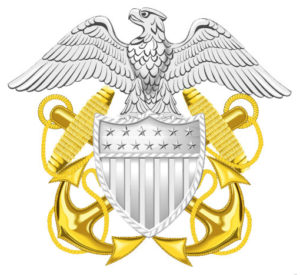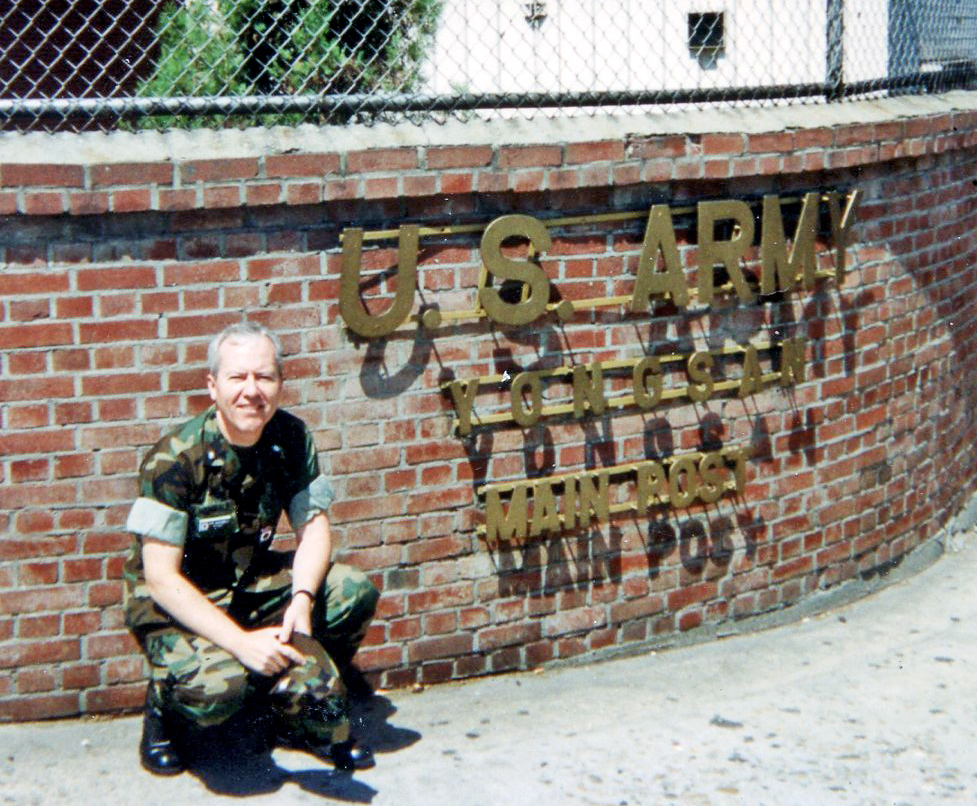Last December, when Korea was “in the news,” I put up a post — “Antsy at DMZ” — talking about my brief trip to the Joint Security Area on the border of North and South Korea in August 1991. In that post, I said I would be posting something about the rest of my trip to Korea “soon.”
“Soon” has finally come.
 My “trip” to Korea was actually Special Active Duty for Training for me as a Naval Reservist, in addition to the mandatory two-week Active Duty for Training I had done previously that summer. I volunteered to participate in Ulchi Focus Lens 1991, a joint exercise between the US and the Republic of Korea (ROK). Indeed UFL was the largest computer-assisted simulation exercise in the world at the time, involving more than 200,000 troops from both countries. A fellow reservist who had previously participated vouched for its worth and I thought it a great opportunity to see Korea.
My “trip” to Korea was actually Special Active Duty for Training for me as a Naval Reservist, in addition to the mandatory two-week Active Duty for Training I had done previously that summer. I volunteered to participate in Ulchi Focus Lens 1991, a joint exercise between the US and the Republic of Korea (ROK). Indeed UFL was the largest computer-assisted simulation exercise in the world at the time, involving more than 200,000 troops from both countries. A fellow reservist who had previously participated vouched for its worth and I thought it a great opportunity to see Korea.
I flew from Oakland to LAX, where I connected with an LA-Seoul non-stop. I remember the flight as being about 11 hours, of which I slept about eight. Landing in Seoul as a member of the Navy, on orders, I had a distinctive process, requiring no passport. I had my Navy ID, my orders, and a special location for processing. Everything went smoothly.
Until I got to the hotel. I recall it was either very early or very late, because it was dark. When I attempted to check in at the Seoul Hilton, I was told there was no reservation in my name and no available room. Hmmm. I had contact info for no one and figured everyone was asleep. I milled about smartly. Somehow, I saw someone I recognized or he saw me. Within a surprisingly short time, I had a room.
I was told standing orders were to eat only at the hotel or on base, the nearby US Army Garrison Yongsan, headquarters for the Army in Korea. There had been an outbreak of cholera in the Korean capital. My first meal was at the hotel. I had read up on Korean cuisine, but was certainly a novice. As I looked at the menu, wondering what I should try, a Korean mother and two kids sat down at the next table. Great! I will listen to what they order. Two spaghettis and meatballs, with the kids splitting one.
I ordered, I believe, bulgogi, rice, and kimchi. Bulgogi means “fire meat” in Korean and is marinated grilled strips of beef. Kimchi is a salted and fermented mix of vegetables, mostly cabbage and radish, but with added peppers, etc. Maybe because most of the hotel guests were waeguk-saram (“foreigner” in Korean), the meal was not as spicy as it could have been.
After that, though, I stuck mostly to American stuff on the base (except for one major exception, to be described in the other post).

This exercise was the only time I wore cammies when I was in the Navy. In fact, I don’t believe the Navy had cammies as a uniform option at the time. There were green utility uniforms, pilot suits, etc., but not cammies. For the purposes of this exercise, we were to wear Marine cammies. As has been the case for a long time and remains so, the Army and Navy/Marines do things differently. (I realize I’m getting down in the weeds here, but this is for the record.) Army officers wore the symbol of their rank on the front of their caps, which are rounded, not peaked like the Navy/Marines. We wore the officer’s crest on the front of the cap and the insignia for rank, in my case silver oak leaves, on the blouse collar.
I found it amusing when I walked around the base and Army enlisted men were walking toward me. Everyone in the military has to pay attention to the rank of the individual whom you are approaching, because you are required to salute someone of higher rank, unless both parties are enlisted, not officers. Enlisted have to salute all officers. I could see enlisted guys scanning me, trying to figure out what I was. The rank wasn’t on my cap. There was just this unusual “thing.” Was this guy from a foreign army? They usually figured it out by the time we got close. My uniform did have a patch saying “US NAVY.” I don’t remember if anybody failed to recognize what I was. I wouldn’t have chastised them, in any case.
My role in the exercise, considering this all being “computer-assisted,” was very low-tech. I recall it being something like “messenger.” I think I had to walk among various exercise locations bringing “classified” material. I remember most that it was a lot of walking. First time I’m wearing cammies, it was also the first time I’m wearing combat boots. As any foot soldier knows, new boots can be no fun when you have to use them a lot in a short period of time. I was in pain the first several days. I guess some might consider it payback for what was generally a pretty easy time for me in the Navy.
Two things I remember particularly from the exercise. One was that while, for me, this was something of a lark, it was nothing like that for the ROK Navy types involved. They were in the military service of a country technically still at war with the regime only 35 miles away, and the careers of ROK officers might be determined by what happened in this exercise. I saw ROK officers be very harsh with subordinates, verbally and even physically.
A more pleasant recollection involved language differences. There was discussion of North Korean “mini-subs.” Maybe because it looked as if I didn’t have a lot to do, one Korean approached me asking about the difference between “mini” and “small.” I think he was confused, because North Koreans couldn’t be using miniature submarines. I said that, in this case, the term meant small, not miniature. Noticing that he and I were about the same size, I said, “We’re small, but we’re not miniature.” He nodded, chuckling. A few minutes later, he came back to me, and said, “Remember, the smallest pepper is the hottest pepper!” 🙂
There will be another post about my walks around Seoul as a tourist, with videos.

